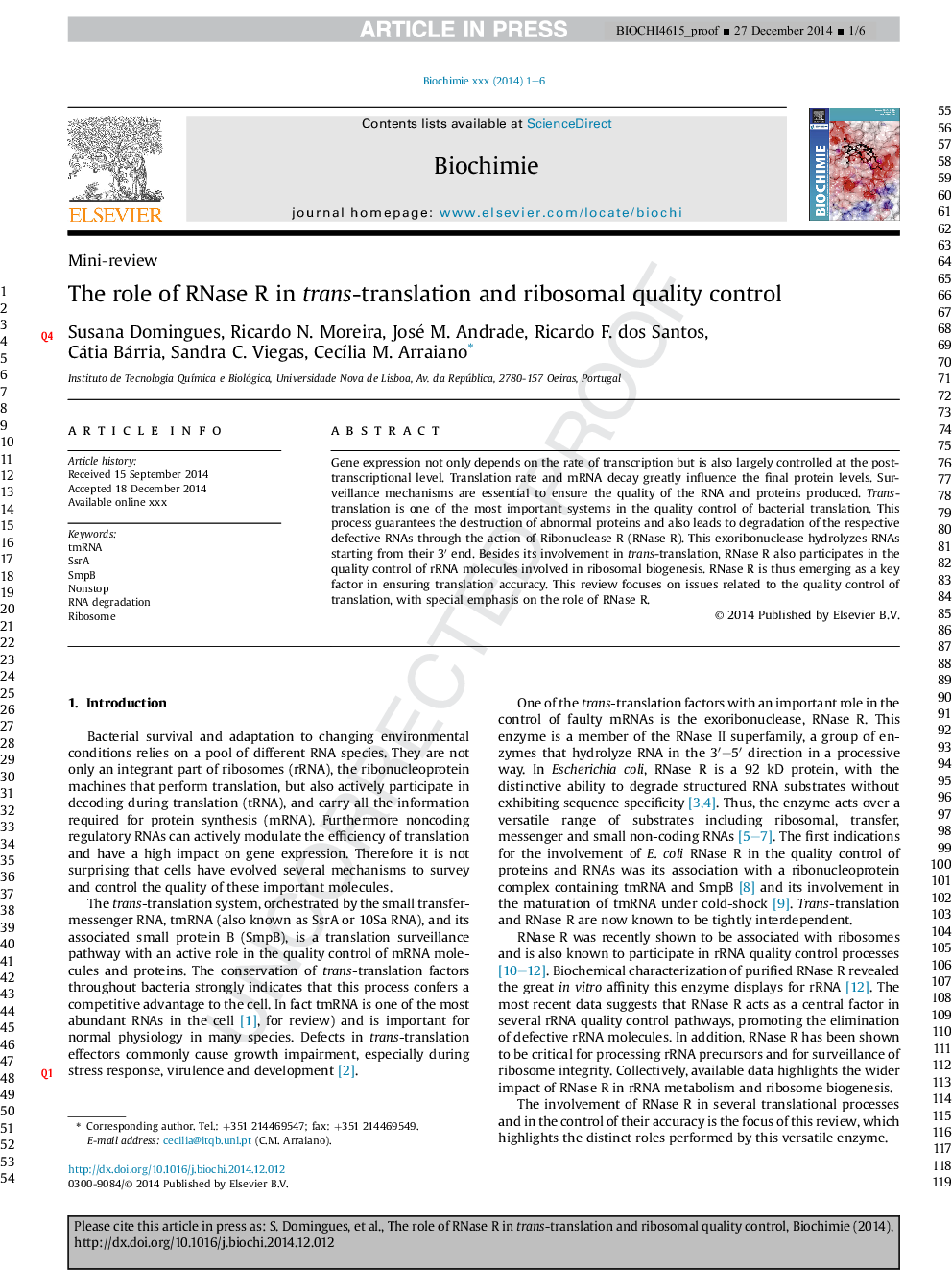| Article ID | Journal | Published Year | Pages | File Type |
|---|---|---|---|---|
| 8304912 | Biochimie | 2015 | 6 Pages |
Abstract
Gene expression not only depends on the rate of transcription but is also largely controlled at the post-transcriptional level. Translation rate and mRNA decay greatly influence the final protein levels. Surveillance mechanisms are essential to ensure the quality of the RNA and proteins produced. Trans-translation is one of the most important systems in the quality control of bacterial translation. This process guarantees the destruction of abnormal proteins and also leads to degradation of the respective defective RNAs through the action of Ribonuclease R (RNase R). This exoribonuclease hydrolyzes RNAs starting from their 3â² end. Besides its involvement in trans-translation, RNase R also participates in the quality control of rRNA molecules involved in ribosomal biogenesis. RNase R is thus emerging as a key factor in ensuring translation accuracy. This review focuses on issues related to the quality control of translation, with special emphasis on the role of RNase R.
Keywords
Related Topics
Life Sciences
Biochemistry, Genetics and Molecular Biology
Biochemistry
Authors
Susana Domingues, Ricardo N. Moreira, José M. Andrade, Ricardo F. dos Santos, Cátia Bárria, Sandra C. Viegas, CecÃlia M. Arraiano,
